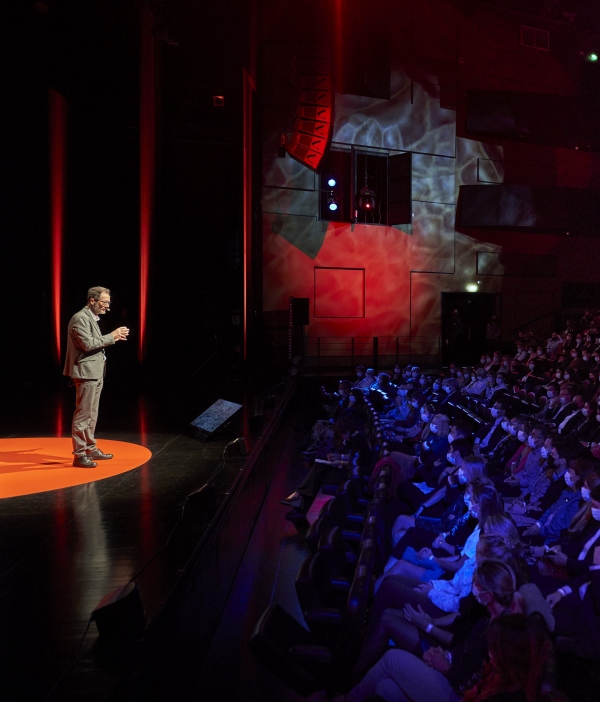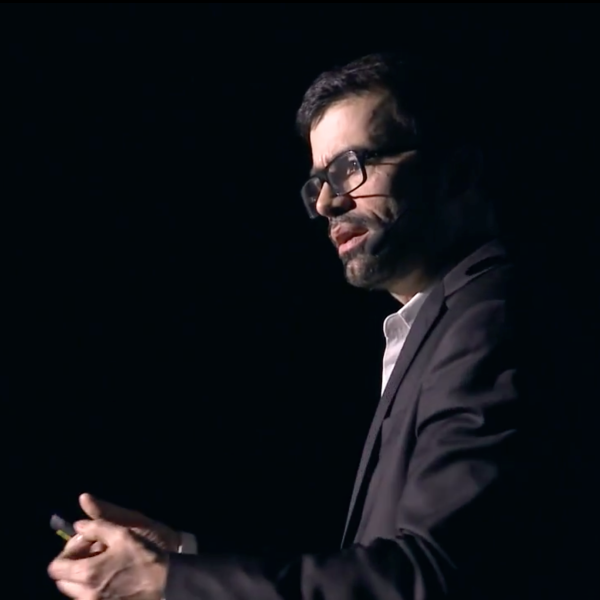Today, artificial intelligence (AI) is at the center of attention. Despite the widespread adoption of tools like ChatGPT—already disrupting work, learning, and creativity—AI companies are struggling to demonstrate a convincing return on investment, given the massive resources being poured in. Institutions such as Goldman Sachs and Sequoia have even indicated in their reports that the promises of AI are likely being overestimated.
At the same time, the first applications of AI are already having clear social and environmental consequences. According to the IMF, AI could affect 60% of jobs—through both creation and destruction—in advanced economies. Google and Microsoft have reported increases of 30% to 50% in their CO₂ emissions due to the development of these technologies. The rise of AI has also coincided with an explosion in misinformation.
Innovation: an end in itself, or a means to a greater purpose?
The current enthusiasm for Artificial Intelligence perfectly illustrates our complex relationship with innovation. Historically, innovation has been a means to meet needs and solve problems. Yet it increasingly tends to position itself as an end in itself. Companies, in search of new sources of growth, differentiation, or competitive survival, often find themselves caught in cycles where innovation has become a constant imperative.
This dynamic has also been fueled by the ideology of disruption, where it is no longer enough to innovate: one must break with the existing order (tradition) to redefine uses and performance standards. As Joseph Schumpeter explained as early as the mid-20th century, innovation is the driving force of capitalism—a process that destroys the old to make way for the new. Fifty years later, Clayton Christensen argues that “disruptive” innovations are those that redefine markets.
Is Innovation Running Out of Steam?
The large corporations Christensen once pointed to are still around—but increasingly struggle to innovate. Economists like Robert Gordon have observed that the pace of innovation has been declining since around 1970. Despite the rise of new innovation methods and the design thinking wave, a gap remains between our technical capabilities and societal acceptance.
Following the 2010s innovation bubble, many companies entered a phase of sharp rationalization: too many initiatives, too many silos, a lack of clear and global strategy, difficult industrialization, and few real successes. Innovation labs and studios have largely failed. At a time when innovation and R&D budgets are under pressure, succeeding at make it happenand market rollout is now imperative. And this is precisely what separates an idea, an invention, and true innovation.
Progress and Innovation
The term innovation has moved beyond technical and industrial domains to become polysemous—so much so, according to Etienne Klein, that it now often replaces the very notion of progress. But is innovation truly synonymous with progress? Our smartphones have profoundly changed our daily rituals, redefined etiquette, captured our attention, and altered our interpersonal relationships—but does that necessarily mean they represent progress?
Innovation doesn’t just transform companies; it also shapes our societies. But is it a good thing that Silicon Valley giants—like X (formerly Twitter), with its peculiar take on freedom of speech, or Netflix, which famously claims its main competitor is sleep—are now the ones redefining our social norms, our values, our trust in institutions and figures of authority, our relationship to democracy, and even our understanding of truth?
A Heightened Ethical, Social, and Environmental Responsibility
Unfortunately, we tend to focus on the potential benefits of innovation while downplaying its long-term negative effects. This pro-innovation bias—identified as early as 1962 by sociologist Everett Rogers—reinforces a “technocratic mindset” that leads us to believe every problem has a technological solution. This techno-solutionism, driven by the GAFAM-BATX-NATU giants, is even present in the promises of green growth and “green tech.”
In light of this, it is becoming urgent to rethink our relationship with innovation. Philosopher Hans Jonas calls for a “projective responsibility,” oriented toward the future, in which companies and institutions anticipate the impact of their technological choices. A new vision of innovation is beginning to emerge. Value criteria are shifting: social and ecological usefulness, resource efficiency, sustainability, and ecosystem regeneration are becoming essential.
There is no shortage of initiatives
To address today’s challenges, new approaches centered on circularity and sustainability are emerging—some driven by companies themselves, others by public regulation: multi-capital accounting, commons-based approaches, low-tech solutions, efforts to combat planned obsolescence and promote maintenance, regenerative solutions… The functional and cooperative economy has, for several years now, been pointing the way toward a more frugal form of innovation.
The most relevant innovations may not necessarily come from traditional players. Promising initiatives are emerging in unexpected sectors: healthcare institutions, associations, citizen collectives. Maisons Partagées Alenvi, for instance, offer shared housing designed to allow elderly people with cognitive disorders to live together in small groups, supported by professionals and connected to the local neighborhood. Too Good To Go introduced a solution to reduce food waste by offering unsold food in discounted baskets. Qalway provides an ecological and economical way to heat social housing (for Groupe des Chalets) by harnessing the heat generated by computer servers.
Toward Innovation That Lives Up to Its Time
nnovation is a powerful force, capable of transforming our lives and addressing complex challenges. But it should not be an end in itself—it must be a tool in service of making the world more livable. Businesses, in particular, have a key role to play. They must move beyond a purely competitive logic to imagine truly transformative innovations—socially acceptable and environmentally sustainable.
Tomorrow’s innovation must be approached systemically, developed in collaboration with all stakeholders, and rooted in the culture of the company that deploys it. This calls for a paradigm shift: letting go of the obsession with exponential growth and the infinite, resisting the urge to add ever more objects to an already saturated world, and instead rediscovering connection, quality of life, and social usefulness. The Doughnut Economics framework, which seeks to reconcile human needs with planetary boundaries (“safe and just”), offers an inspiring lens for thinking about responsible and inclusive innovation.
By reexamining our practices, we can unlock and rediscover relational value, the “domestic” value of proximity, and the value of care—for ourselves, for others, and for the environments we inhabit. In times of uncertainty, there is nothing more empowering than reclaiming innovation to build a desirable future together. It’s time to innovate less, but better—to innovate with fairness and precision. There is something here of humility and balance—qualities that allow us to rebuild meaning and society.





